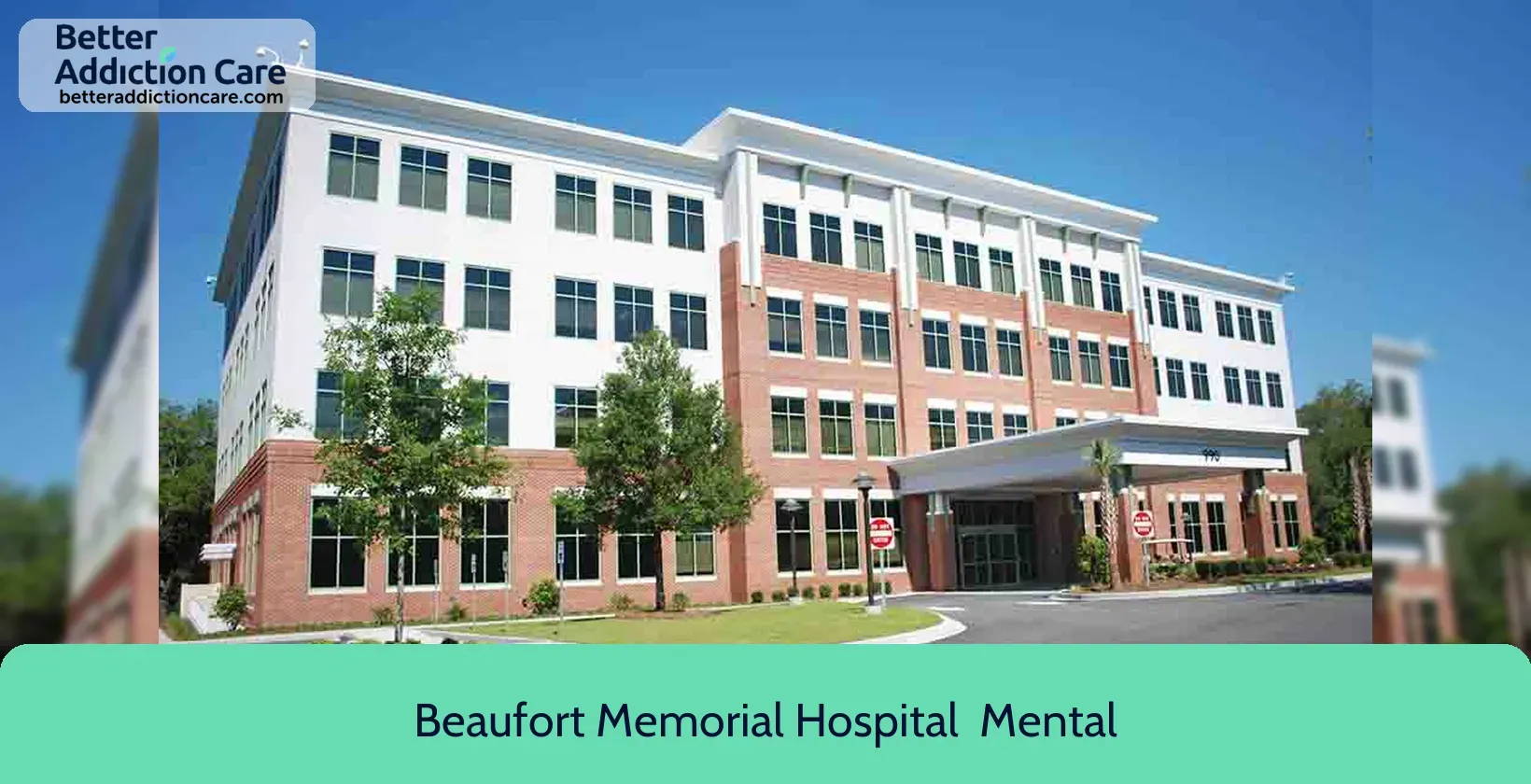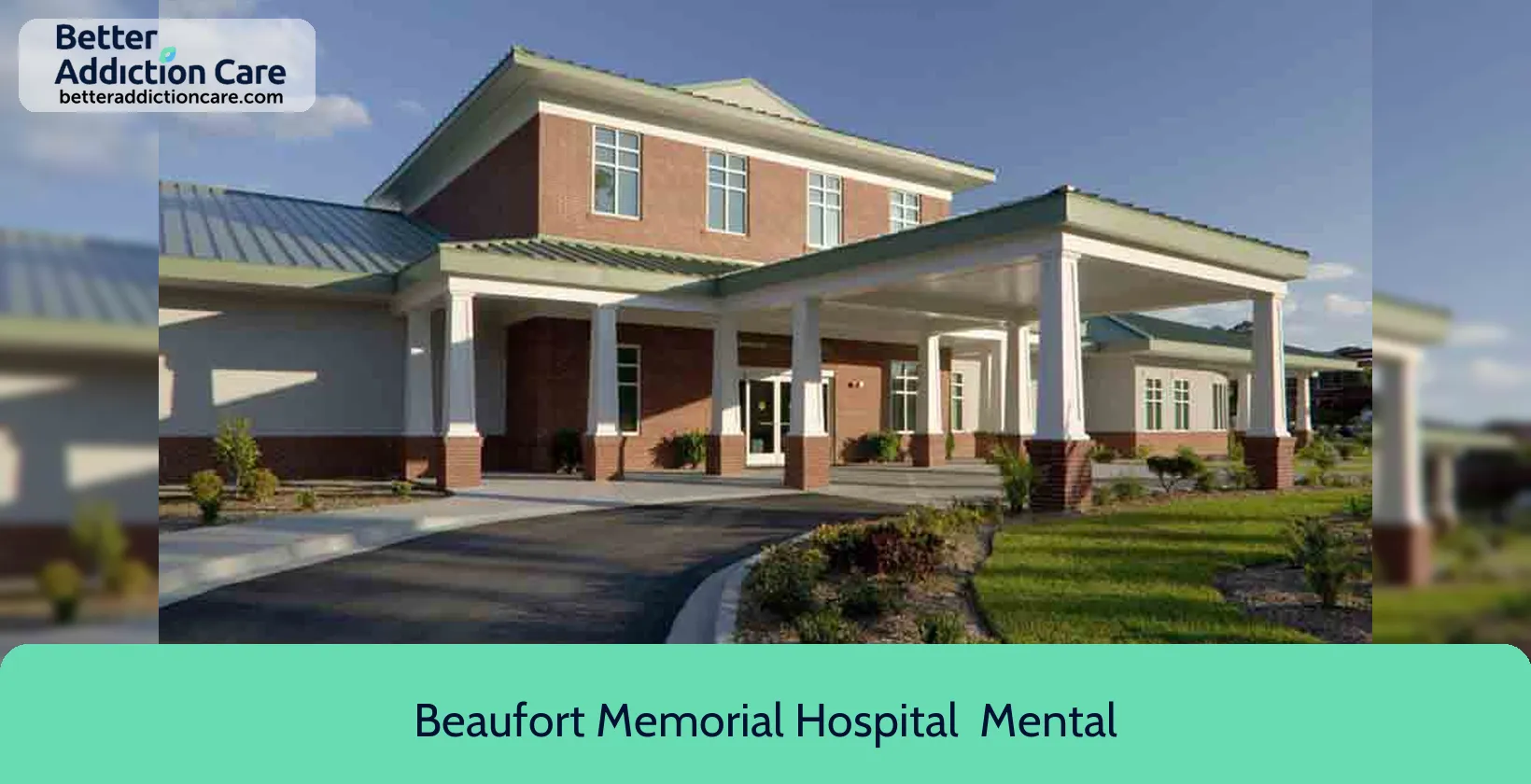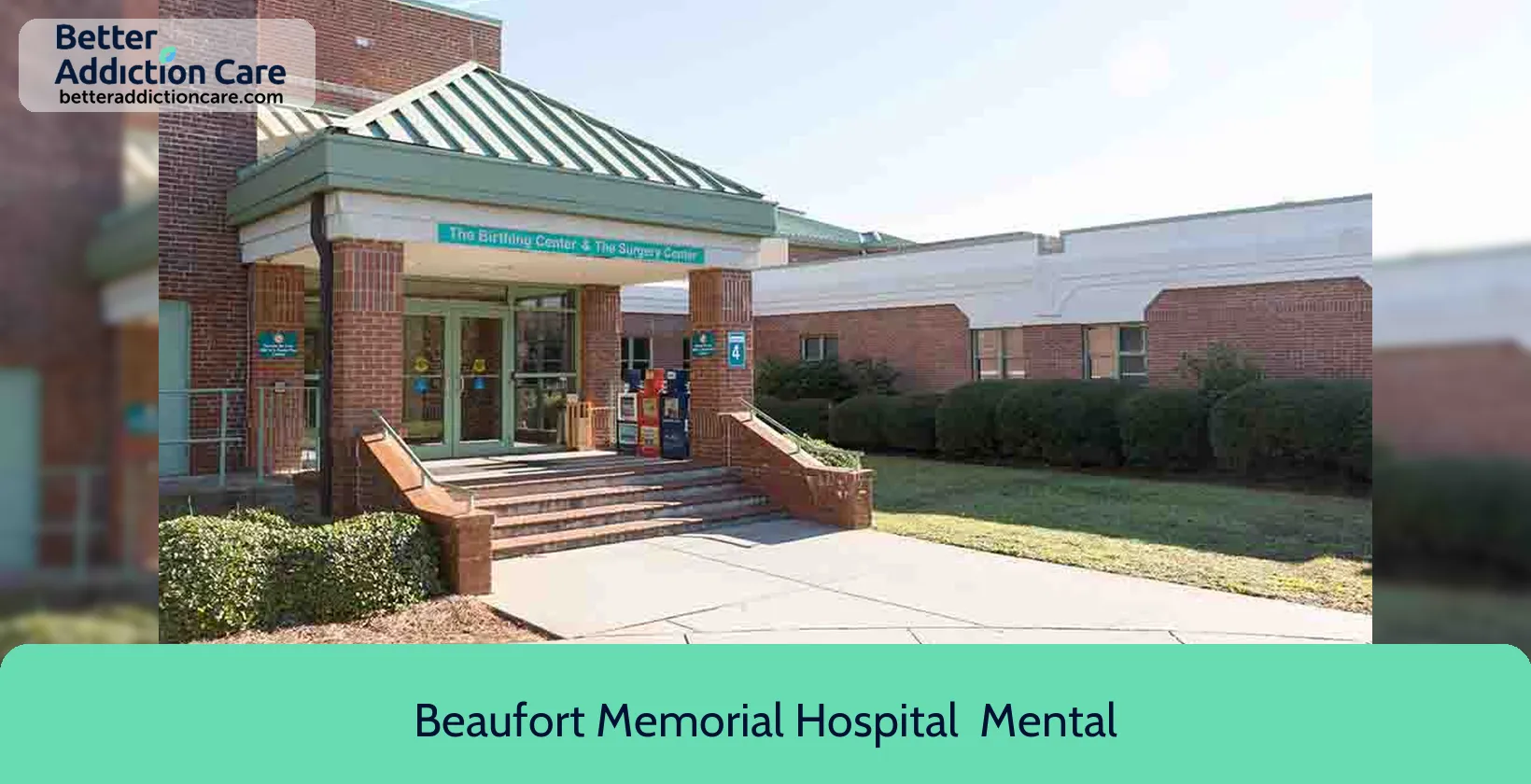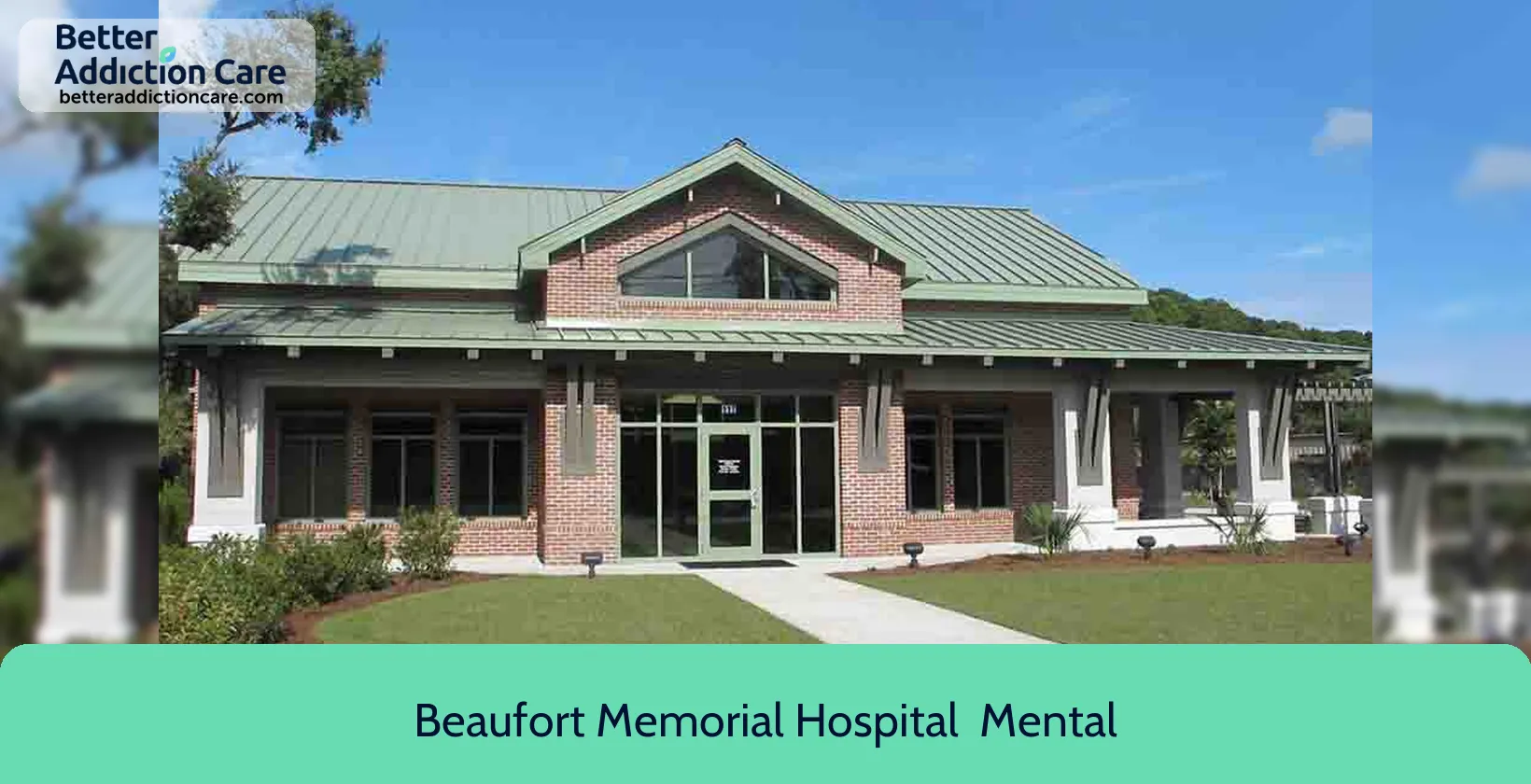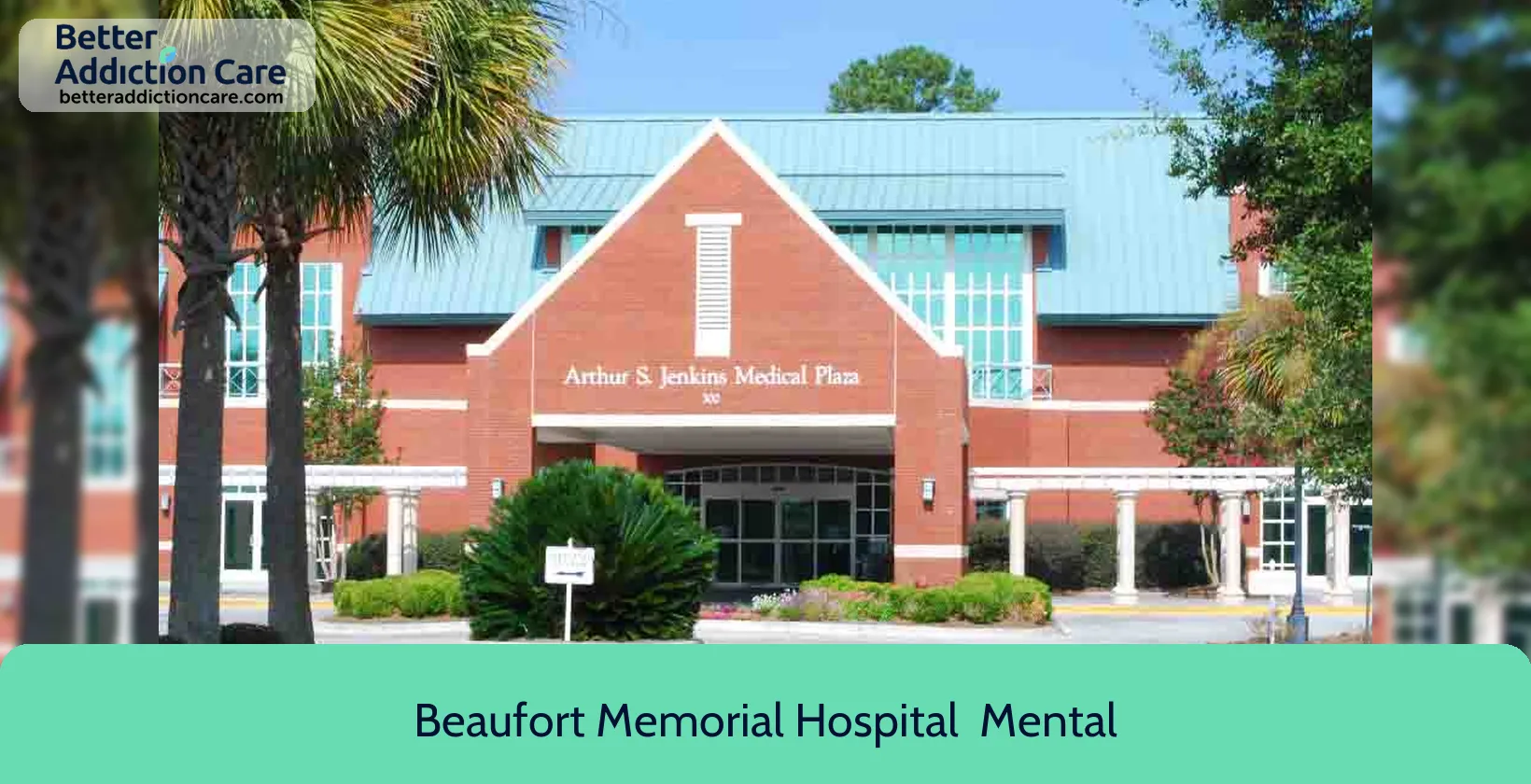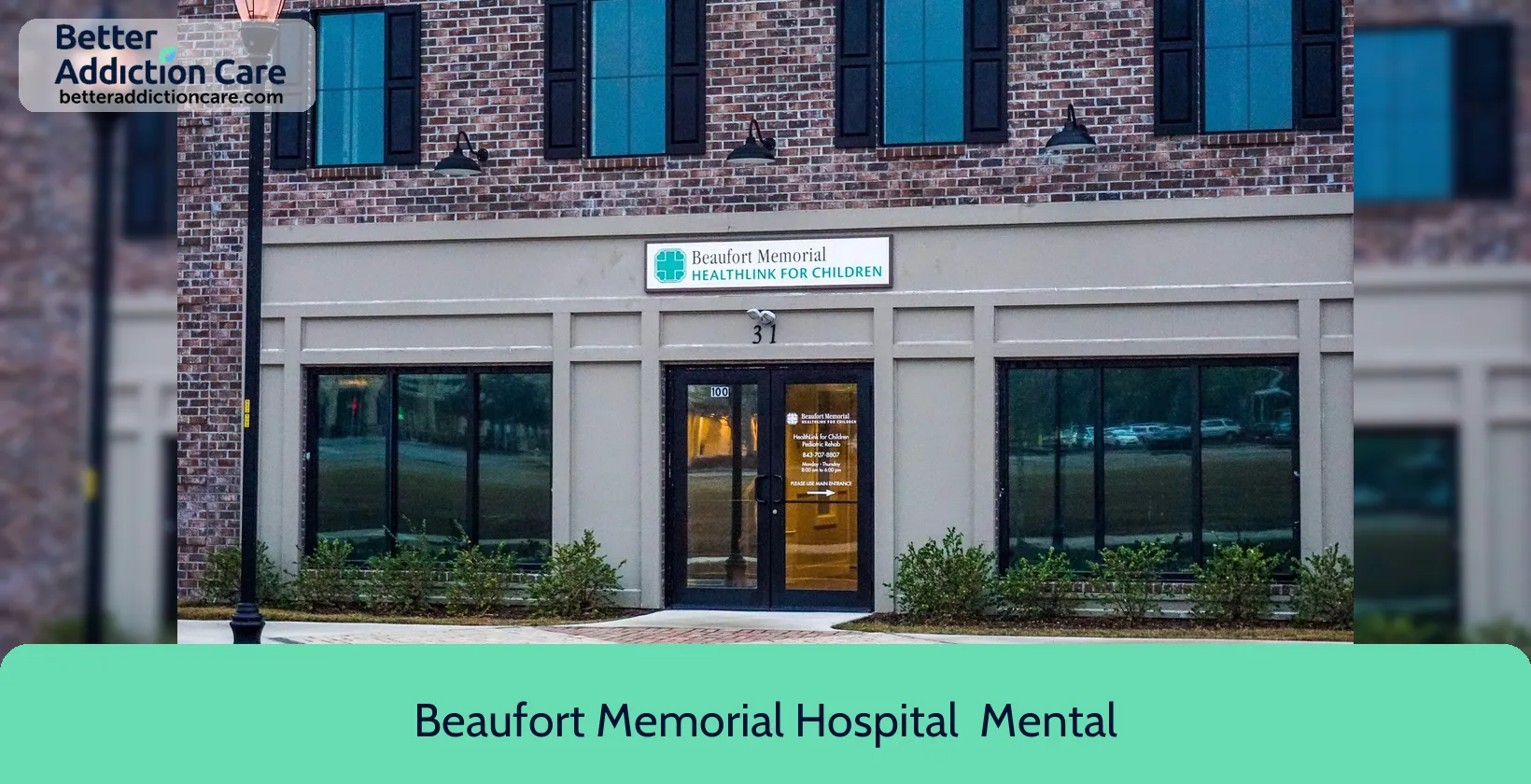Beaufort Memorial Hospital - Mental Health Services
Overview
Beaufort Memorial Hospital - Mental Health Services is a mental health treatment center for people seeking treatment near Beaufort County. As part of their treatment modalities for recovery, Beaufort Memorial Hospital - Mental Health Services provides group counseling, cognitive behavioral therapy, and activity therapy during treatment. Beaufort Memorial Hospital - Mental Health Services is located in Beaufort, South Carolina, accepting cash or self-payment for treatment.
Beaufort Memorial Hospital - Mental Health Services at a Glance
Payment Options
- Cash or self-payment
- Medicaid
- Medicare
- State-financed health insurance plan other than Medicaid
- Private health insurance
Assessments
- Screening for tobacco use
- Comprehensive mental health assessment
- Comprehensive substance use assessment
Age Groups
- Young adults
- Adults
- Seniors
Ancillary Services
- Court-ordered outpatient treatment
- Diet and exercise counseling
- Education services
- Family psychoeducation
- Suicide prevention services
Highlights About Beaufort Memorial Hospital - Mental Health Services
6.68/10
With an overall rating of 6.68/10, this facility has following balanced range of services. Alcohol Rehabilitation: 8.00/10, Drug Rehab and Detox: 6.00/10, Insurance and Payments: 6.00/10, Treatment Options: 6.73/10.-
Alcohol Rehabilitation 8.00
-
Treatment Options 6.73
-
Drug Rehab and Detox 6.00
-
Insurance and Payments 6.00
Treatment At Beaufort Memorial Hospital - Mental Health Services
Treatment Conditions
- Mental health treatment
- Substance use treatment
- Co-occurring Disorders
Care Levels
- Hospital inpatient/24-hour hospital inpatient
Treatment Modalities
- Group counseling
- Cognitive behavioral therapy
- Activity therapy
- Electroconvulsive therapy
- Smoking/vaping/tobacco cessation counseling
Ancillary Services
Additional Services
- Pharmacotherapies administered during treatment
- Metabolic syndrome monitoring
Special Programs
- Clients with co-occurring mental and substance use disorders
- Persons 18 and older with serious mental illness (SMI)
Get Help Now
Common Questions About Beaufort Memorial Hospital - Mental Health Services
Contact Information
DISCLAIMER: The facility name, logo and brand are the property and registered trademarks of Beaufort Memorial Hospital - Mental Health Services, and are being used for identification and informational purposes only. Use of these names, logos and brands shall not imply endorsement. BetterAddictionCare.com is not affiliated with or sponsored by Beaufort Memorial Hospital - Mental Health Services.
